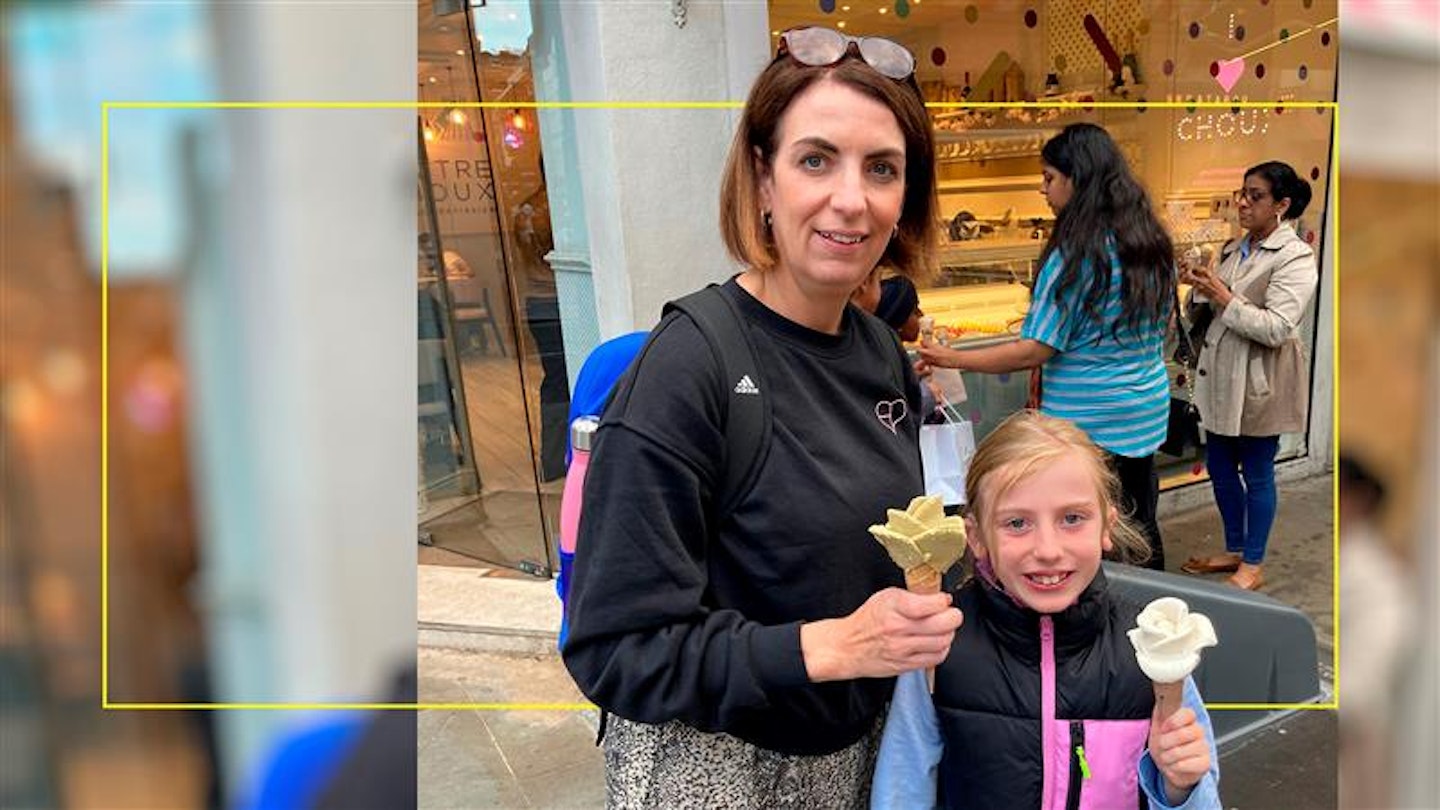For 15 unforgettable seconds, during last year’s Strictly Come Dancing, the music fell silent while the show’s first ever deaf contestant, and eventual winner, Rose Ayling-Ellis, danced on with her partner Giovanni Pernice.
The instrumentals of Clean Bandit’s Symphony - ‘I’ve been hearing symphonies, before all I heard was silence’ - gave way to the soundless world that the Eastenders’ actress, along with more than 50,000 deaf children in the UK, inhabit every day. For Paula Fitzgerald, whose daughter, Isla, was born profoundly deaf, the TV moment – now being replicated on Strictly’s nationwide live tour - left her ‘an emotional wreck.’
‘I had never seen a woman who my daughter could aspire to grow into on television before, and neither had she. There was no public role model before Rose. I cried happy tears,’ reflects Paula, recounting the ‘unmatched’ impact that the 27-year-old’s Strictly appearance had on nine-year-old Isla. ‘The “Rose effect”, as we started calling it in our house, gave her the confidence to advocate for herself, in the classroom and among friends, for the first time. From the first week, Isla was amazed by her.’
The family - Paula, husband Graham, Isla and sister Rhea, 12 - sat down every Saturday and Sunday night to watch: ‘Seeing my daughter's reaction to this beautiful, deaf dancer was incredible.
‘When your child is born different, you are filled with worries about their future; to see strong role models and a future they can see for themselves, is all you ever want for them. The knock-on effect, in terms of other people’s acceptance and understanding of Isla’s needs and experience of the world, has been huge.’
Isla was born profoundly deaf (which means a total lack of hearing) in one ear, and severely deaf in the other. Her condition was missed at birth and only picked when she was two and didn’t learn to talk. In 2015, just months before her third birthday, she underwent several tests and was given hearing aids. Aged four, she received cochlear implants - small, surgically-fitted devices that turn sounds into electrical signals, making them audible, rather than simply making them louder. In perfect conditions, the technology allows her to hear within normal range, supported by lip reading and British Sign Language (BSL).
Rose, who was also deaf from birth, has described her condition as “a gift” and has advocated for BSL to become a recognised language across the UK. (It currently holds legal status only in Scotland). She has backed a bill, currently making its way through parliament, that is expected to see the change accepted into law by March, a hard-fought moment that the star has predicted will be ‘emotional.’
‘Everything has felt like a fight to get Isla what she needs,’ reflects Paula, 42. ‘We’ve always taught her not to be self-conscious, to wear her hair up and not hide her implants but she’s been shy to stand up for herself. Rose changed that.’ Isla now gives Friday sign language lessons to classmates at her mainstream primary school, in Belfast, teaching them a new topic, like animals or colours, each week.
‘She would never have done that before Strictly,’ says Paula. ‘The way the show embraced sign language made a big difference.”
A sign language interpreter is being projected onto big screens during the live arena tour. During the series, Rose and Giovanni incorporated it into routines, like Frozen’s Love is an Open Door, and audiences replaced clapping with ‘silent jazz hands’, the BSL show of applause.
‘With each week, Isla grew more and more enthusiastic. She taught us how Rose was tapping into the rhythm of her dances by counting the beat, rather than relying on the music. As parents, there were suddenly images circulating on WhatsApp and social media celebrating deafness. It was a big milestone for the deaf community.’
Isla’s experience was not unique. A survey of deaf children and their families, by the National Deaf Children's Society, revealed that three-quarters felt the show had given the public a better understanding of deafness and two-thirds of deaf children felt more confident about wearing their hearing aids or talking about their condition.
When Isla was first diagnosed, seven-years-ago, Paula visited a therapist: ‘I was overwhelmed and slightly devastated. We were hearing parents, which is typically the case with a deaf child. I’d never met anyone who was deaf and didn’t know the outcomes for deaf children. You grieve the healthy newborn baby you thought you had as you come to terms with a life-changing condition. You have an older child to think of too and you embark on a journey, as a family.’
Rose and Giovanni’s silent dance moment, in front of audiences on the Strictly tour, has been described as spellbinding. What it delivers, on a deeper level, is a legacy, says Paula: ‘When you read books or watch TV or movies with your child, you become aware that differences, like deafness, are not celebrated. Rose gave deaf children the power of representation and all that brings. Little girls saw themselves in her.
‘Had Rose been on TV when Isla was diagnosed I’d have known, then, the power of having a role model. I’d have saved myself the worries over whether she’d find the things in life that we want for our children and, instead, seen straight away that her future was bright.’
